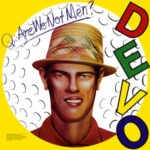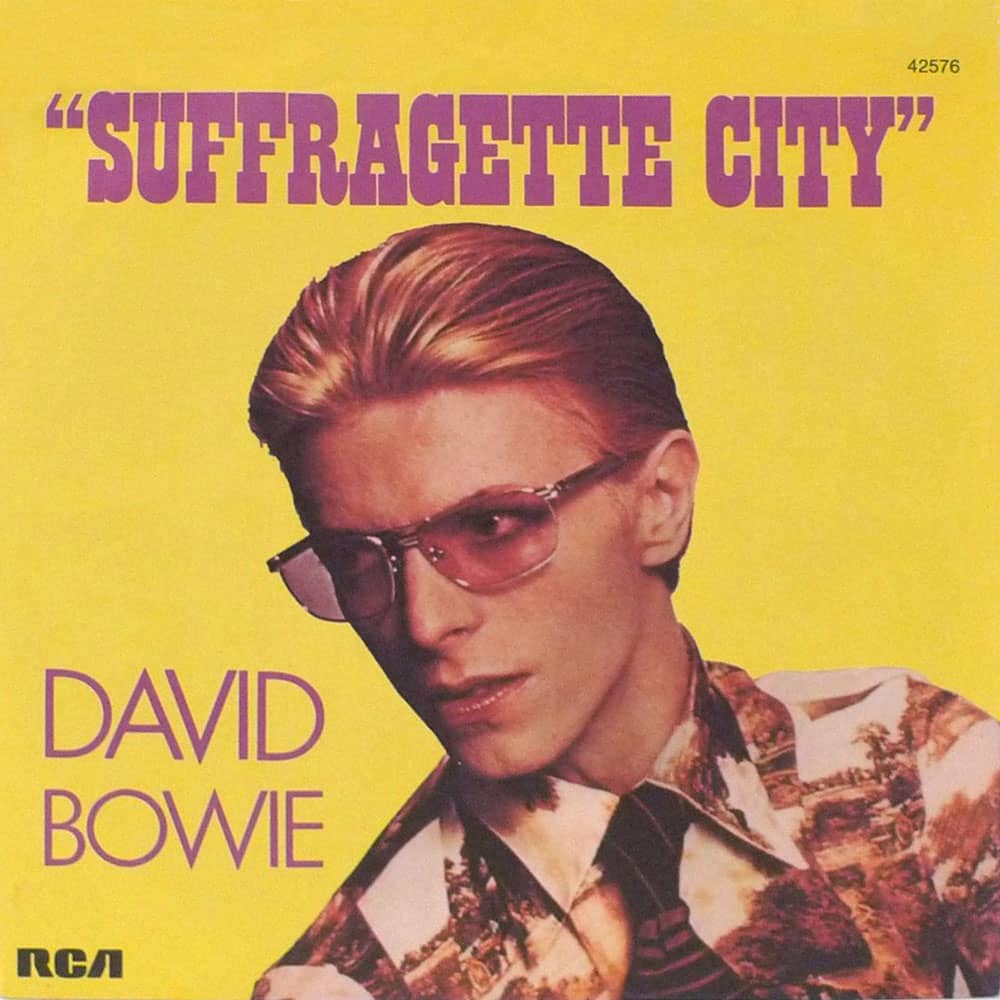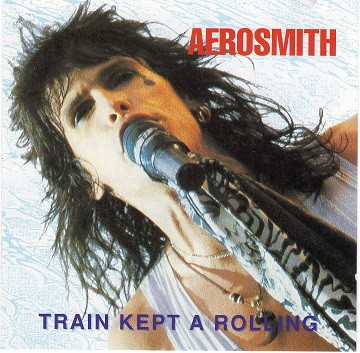 Few songs capture the spirit of art-rock absurdity, anxious energy, and sly cultural critique quite like “Uncontrollable Urge” by Devo. The opening track of their groundbreaking 1978 debut album Q: Are We Not Men? A: We Are Devo!, it stands as a perfect encapsulation of the band’s ethos: jagged riffs, manic pacing, robotic repetition, and a sense of humor that’s both playful and unsettling. It’s not merely a rock song—it’s a manifesto, a mission statement, and a sharp jab at the conventions of pop culture.
Few songs capture the spirit of art-rock absurdity, anxious energy, and sly cultural critique quite like “Uncontrollable Urge” by Devo. The opening track of their groundbreaking 1978 debut album Q: Are We Not Men? A: We Are Devo!, it stands as a perfect encapsulation of the band’s ethos: jagged riffs, manic pacing, robotic repetition, and a sense of humor that’s both playful and unsettling. It’s not merely a rock song—it’s a manifesto, a mission statement, and a sharp jab at the conventions of pop culture.
“Uncontrollable Urge” might not be as instantly recognizable to casual listeners as Devo’s later hit “Whip It,” but within the post-punk and new wave landscape, it’s one of their most definitive statements. It’s a track that feels like it could come unglued at any moment, yet the musicianship is precise, even surgical. Beneath the frantic exterior lies an intentional design, one that mirrored Devo’s central theory of “de-evolution”—the idea that instead of progressing, society was regressing into chaos, conformity, and stupidity.
To understand “Uncontrollable Urge” is to dive into Devo’s worldview, their sonic palette, and the late 1970s environment that gave birth to one of the most unique bands in rock history.
The Frenzied Anatomy of the Song
From the first seconds of “Uncontrollable Urge,” listeners are thrust into a nervous sprint. The song begins with Bob Mothersbaugh’s jagged guitar riff, immediately joined by pounding drums from Alan Myers—one of the most underrated drummers of the era. The guitars are not smooth or traditionally melodic; instead, they stab and jangle with precision, almost like a machine malfunctioning in perfect rhythm.
Mark Mothersbaugh’s vocals enter in a rush, half-yelled, half-sung, with a strained urgency:
“Yeah yeah yeah yeah yeah yeah yeah yeah yeah, yeah yeah yeah yeah yeah yeah yeah yeah!”
The repetition is both funny and unsettling. It feels like a nervous tick, like someone unable to control their impulses. That’s the genius of Devo: the lyrical content is minimal, but it conveys a psychological state. The “urge” isn’t explained. It’s raw, primal, and beyond rationality.
The song doesn’t build in the traditional verse-chorus way. Instead, it locks into a relentless groove and keeps hammering away, only shifting gears slightly as Mark’s vocals climb and break into frantic exclamations. The guitars sound itchy, twitchy, and relentless, while Gerald Casale’s bass holds down a steady, robotic thump that grounds the chaos.
The effect is exhilarating. The track isn’t about melodic beauty—it’s about kinetic energy, nervous motion, and a kind of manic dance-floor frenzy. It feels as if it’s constantly on the verge of explosion but never quite detonates, which makes the tension all the more compelling.
The Sound of Devo’s “De-Evolution”
Devo always insisted that they weren’t just a rock band; they were a conceptual project. Their philosophy of “de-evolution” argued that instead of humanity advancing, it was regressing—socially, culturally, even biologically. The band expressed this theory not only in their lyrics, but in their stage presence, visuals, and deliberately mechanical sound.
“Uncontrollable Urge” embodies this concept musically. On the surface, it’s a rock song—guitars, bass, drums, vocals. But the way it’s performed strips away rock’s swagger and replaces it with something stiffer, colder, and more mechanized. The guitars don’t swing; they stab. The vocals aren’t smooth; they’re barked in clipped repetition. The band doesn’t groove in a traditional funk sense; instead, they lock into a rigid, relentless rhythm that feels more like an assembly line than a jam session.
This was Devo’s satire: to present rock music—long associated with rebellion and freedom—in the form of a nervous, tightly wound, robotic frenzy. “Uncontrollable Urge” feels like a human impulse struggling to break free in a world of increasing conformity. It’s primal need colliding with mechanized society.
Produced by Brian Eno: An Unlikely Collaboration
One of the most fascinating aspects of Q: Are We Not Men? is that it was produced by Brian Eno, the ambient pioneer and former Roxy Music keyboardist. By 1978, Eno had already worked with David Bowie on his Berlin Trilogy and was becoming one of the most influential producers in the world.
For Devo, Eno brought a balance of polish and restraint. The band’s live performances of “Uncontrollable Urge” were even more frantic and raw, but Eno helped channel that energy into something listenable without stripping away its edge. The result is a track that feels wild but never sloppy, manic but not chaotic. Every guitar jab, every drum hit, and every vocal exclamation is placed with precision.
Eno understood that Devo’s power came from their tension—the line between control and chaos—and “Uncontrollable Urge” exemplifies that balance.
A Statement of Intent on Are We Not Men?
Album openers are crucial, and for Devo, choosing “Uncontrollable Urge” as the first track on their debut was no accident. It was their mission statement, their handshake (or perhaps slap in the face) to the listener.
By starting the album this way, Devo announced that they weren’t interested in traditional rock tropes. This wasn’t about love ballads, bluesy riffs, or feel-good choruses. This was about anxiety, absurdity, and art as provocation. “Uncontrollable Urge” essentially told listeners: buckle up, because this isn’t your typical rock record.
The rest of the album would go on to include their deconstructed cover of the Rolling Stones’ “(I Can’t Get No) Satisfaction,” the herky-jerky brilliance of “Jocko Homo,” and other nervy, satirical tracks. But “Uncontrollable Urge” set the stage, priming listeners for the strange journey ahead.
Devo on Stage: The Song as Performance
Live, “Uncontrollable Urge” became one of Devo’s most exhilarating numbers. The band, dressed in their signature industrial jumpsuits or later in their iconic yellow hazmat suits and energy dome hats, would deliver the song with the same manic intensity as the studio version—but louder, faster, and often with even more edge.
Mark Mothersbaugh’s vocal delivery would lean even further into mania, while Alan Myers’ drumming turned into a relentless machine-gun assault. The band’s movements on stage—jerky, robotic, synchronized—mirrored the tension of the music. It wasn’t just a song; it was performance art, part of Devo’s larger satire of modern life.
Fans didn’t just hear “Uncontrollable Urge.” They saw it embodied through the band’s strange choreography, their unsettling uniforms, and their total commitment to the bit.
Cultural Context: Punk, Post-Punk, and New Wave
Released in 1978, “Uncontrollable Urge” landed in the middle of a shifting musical landscape. Punk had exploded just a year earlier, with bands like the Sex Pistols and The Ramones tearing down the excess of classic rock. But by the time Devo released their debut, punk was already evolving into something stranger—post-punk and new wave, genres that blended punk’s energy with experimental sounds, irony, and art-school sensibilities.
Devo fit right into this shift. While the Sex Pistols had sneered at society with brute force, Devo satirized it with absurdity and performance art. While The Clash infused their punk with reggae and politics, Devo injected theirs with surreal humor and sci-fi imagery.
“Uncontrollable Urge” belongs firmly in that post-punk lineage, alongside early Talking Heads, Wire, and Pere Ubu. But unlike some of their contemporaries, Devo leaned hard into accessibility—they wanted their satire to also be catchy, danceable, and strangely fun. The result was a song that could make you laugh, think, and dance nervously all at once.
The Lyrics: Minimalism as Satire
One of the most striking things about “Uncontrollable Urge” is its lyrical minimalism. Outside of the repeated “yeah yeah yeah yeah yeahs,” there isn’t much text. But that’s the point.
The lyrics evoke a sense of compulsion without explanation. The “urge” isn’t named, and that ambiguity is key. Is it sexual? Is it violent? Is it consumerist? Is it just the general human impulse to do something, anything, even if it makes no sense? By leaving it vague, Devo makes it universal.
In a way, the lyrics reflect the state of modern life: a swirl of impulses, distractions, and compulsions, often divorced from logic or reason. It’s primal humanity crashing into modern mechanization.
Influence and Legacy
Though “Uncontrollable Urge” never became a radio hit, it has endured as one of Devo’s essential songs. For fans and critics, it remains a perfect example of their early brilliance—raw, satirical, and nervously danceable.
Its influence can be felt across genres. Bands like Talking Heads, B-52s, and later even alternative acts like Pixies and Nirvana drew from Devo’s ability to make dissonance catchy and absurdity meaningful. The song’s jerky rhythms and manic energy laid the groundwork for a whole generation of art-punk and new wave experimentation.
In 2009, Pitchfork included Q: Are We Not Men? on its list of the 100 greatest albums of the 1970s, and “Uncontrollable Urge” has been singled out repeatedly as a highlight of the record.
Even in popular culture, the song has popped up—featured in movies, covered by indie bands, and championed by musicians who admire Devo’s refusal to play by the rules.
Conclusion: A Nervous Classic
“Uncontrollable Urge” is more than just a song—it’s an experience. It’s the sound of nervous energy bottled into two and a half minutes, a track that captures both the absurdity and anxiety of modern life.
For Devo, it was the perfect way to introduce themselves to the world: manic, satirical, tightly wound, and unforgettable. It remains one of the great opening tracks in rock history, and one of the best examples of how music can be both unsettling and fun at the same time.
The song’s legacy endures not because it was a radio hit, but because it perfectly encapsulates a moment in time: the late ’70s collision of punk, art, and cultural critique. It’s proof that sometimes the strangest songs are the ones that last the longest.


